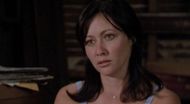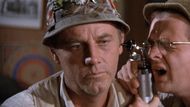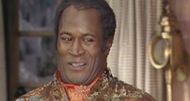Off-screen drama has shaped some of the most shocking character deaths in TV history. Fans watched Kevin Costner’s alleged clash with Yellowstone creator Taylor Sheridan spiral into talks of John Dutton’s abrupt end. Now, it is not the first time a lead character was written off due to real-life conflicts. Charlie Sheen’s infamous meltdown and public feud with Chuck Lorre forced Two and a Half Men to kill off Charlie Harper. Despite her popularity, Shannen Doherty’s tensions with Charmed producers led to Prue Halliwell’s death. Grey’s Anatomy has its own history of cutting ties through dramatic exits.
1) John Dutton (Yellowstone)

Kevin Costner’s conflict with Yellowstone creator Taylor Sheridan led to his character’s planned exit. Disagreements arose over Costner’s availability as he prioritized his own project, Horizon. Filming schedules became a major sticking point, creating tension between Costner and the production team. Reports suggest Sheridan grew frustrated with the actor's demands. The conflict escalated, leaving Costner’s continuation on the show impossible. Writing off John Dutton ensures the storyline can move forward without unresolved off-screen issues.
2) Charlie Harper (Two and a Half Men)

Charlie Sheen’s public meltdown was a major reason for his character’s death. Sheen clashed openly with show creator Chuck Lorre, criticizing him in interviews. His behavior on and off set became unpredictable, including allegations of substance abuse. Lorre and the studio felt Sheen’s presence was harming the show. His contract was terminated during the eighth season. The writers chose to kill Charlie Harper in an exaggerated, comedic manner. Ashton Kutcher was later brought in as the show’s new lead. Sheen’s exit remains one of TV’s most controversial firings.
3) Prue Halliwell (Charmed)

Shannen Doherty left Charmed after reported conflicts with co-star Alyssa Milano. Their personal disagreements caused significant tension on set. Producers sided with Milano, leading to Doherty’s exit after the third season. Prue Halliwell was killed off in the season finale, shocking fans. This decision allowed the introduction of Paige Matthews, played by Rose McGowan. Doherty later acknowledged the toxic environment as a reason for leaving. Despite her exit, Prue’s death remains one of the most emotional moments in the show. Fans continue to debate whether this behind-the-scenes drama was worth losing a beloved character.
4) George O’Malley (Grey’s Anatomy)

T.R. Knight left Grey’s Anatomy due to issues with his character’s reduced screen time. Knight reportedly felt sidelined and expressed frustration to showrunner Shonda Rhimes. A breakdown in communication between Knight and the creative team worsened the situation. Knight eventually asked to leave the series. His departure was finalized with George O’Malley’s heroic death in the season six premiere. The storyline gave closure but left fans divided. Many felt George’s arc deserved more attention. Knight later confirmed he felt staying on the show wasn’t beneficial to his career.
5) Derek Shepherd (Grey’s Anatomy)

Patrick Dempsey’s time on Grey’s Anatomy ended amidst allegations of disruptive behavior. Reports claimed Dempsey clashed with Shonda Rhimes and other cast members. His commitment to the series had reportedly waned during the later seasons. This dissatisfaction contributed to behind-the-scenes tension. Rhimes decided to kill Derek Shepherd in a dramatic car accident. Fans were shocked, as Derek was a central character. Dempsey later acknowledged the difficulties of working on such a long-running series. His exit marked a significant shift in the show’s focus. The aftermath of Derek’s death remains one of the series' most polarizing moments.
6) Edie Britt (Desperate Housewives)

Nicollette Sheridan’s exit from Desperate Housewives was rooted in disputes with creator Marc Cherry. Sheridan alleged Cherry struck her during a disagreement on set. She claimed this led to retaliation when her character, Edie Britt, was written off. Edie’s sudden death by electrocution shocked fans. Sheridan filed a lawsuit against Cherry and ABC, alleging wrongful termination and assault. The legal battle became highly publicized but was ultimately dismissed. Cherry and the network maintained the decision was creative. They cited budget cuts and a need to refocus the storyline. The controversy overshadowed her character’s memorable impact on the series.
7) Dr. Lawrence Kutner (House)

Kal Penn’s decision to leave House came as a surprise to fans. Penn accepted a political role in President Obama’s administration, prompting his departure. The writers chose to address his absence through a shocking storyline. Kutner’s suicide was portrayed without prior warning, reflecting real-life unpredictability. Fans were stunned by the abruptness of the character’s death. Penn later explained his transition from acting to public service was a personal choice. The producers respected his career shift, though some fans criticized the lack of closure for Kutner.
8) Marissa Cooper (The O.C.)

Mischa Barton played Marissa Cooper for three seasons on The O.C. Barton faced challenges on set, including reports of on-set bullying. She cited a toxic work environment as a factor in her decision to leave. Producers offered Marissa a potential return, but Barton declined. The character’s death in a car accident shocked viewers. Her exit significantly changed the show’s tone in later seasons. Barton stated leaving the show was necessary for her mental health. Fans criticized the decision, feeling Marissa’s departure left a void in the series. Barton pursued other acting opportunities after leaving.
9) Henry Blake (M*A*S*H)

McLean Stevenson portrayed Lt. Colonel Henry Blake during the first three seasons of M*A*S*H. Stevenson was unhappy with his role, believing it lacked substance. He wanted more screen time and character development. Dissatisfaction led to his decision to leave the series. The writers created a shocking storyline for his exit. Blake was discharged, but his plane was shot down, killing him. The unexpected death resonated with viewers and critics. It became one of television’s most memorable moments. Stevenson pursued other opportunities after leaving.
10) Lori Grimes (The Walking Dead)

Sarah Wayne Callies played Lori Grimes during the first three seasons of The Walking Dead. Callies supported her character’s death, aligning with the comic series’ storyline. Creative decisions guided Lori’s dramatic demise during childbirth. However, behind-the-scenes reports suggest tensions between Callies and the show’s leadership influenced the timing. Callies expressed no regrets about leaving, viewing the exit as true to Lori’s arc. The character’s death deeply impacted Rick and Carl’s development. Fans were divided over her departure. Some appreciated the narrative consistency, while others felt the loss hurt the show. Callies moved on to other projects soon after.
11) Matthew Crawley (Downton Abbey)

Dan Stevens chose not to renew his contract after three seasons of Downton Abbey. He sought new creative challenges beyond the series. Stevens' decision led to his character, Matthew Crawley, being written off. The writers orchestrated a fatal car crash for Matthew. This exit shocked fans, as Matthew was a central figure. Stevens later expressed a desire for freedom in his career choices. He acknowledged the impact of his departure on the show's narrative. The actor has since pursued diverse roles across film and television. His departure remains a pivotal moment in the series' history.
12) Tasha Yar (Star Trek: The Next Generation)

Denise Crosby portrayed Lieutenant Tasha Yar in the first season of Star Trek: The Next Generation. She became dissatisfied with her character's limited development. Crosby felt Yar was underutilized in the storyline. Seeking more substantial roles, she requested to leave the show. The writers responded by having Yar killed by an alien creature. Her death was sudden and unexpected for viewers. Crosby later reflected on her decision, acknowledging its impact. She returned for guest appearances in subsequent seasons. Yar's death is remembered as a major event in the series.
13) Brooke Armstrong (Melrose Place)

Kristin Davis joined Melrose Place as Brooke Armstrong in its third season. Initially introduced as a love interest, her character became entangled in complex plots. Over time, the writers felt Brooke's storyline had reached its peak. Off-screen dynamics and evolving narratives influenced this decision. Consequently, Brooke was written off the show. Her character met a tragic end by drowning. Davis moved on to other acting opportunities post-departure. She later gained fame on Sex and the City.
14) Susan Ross (Seinfeld)

Heidi Swedberg played Susan Ross, George Costanza's fiancée, on Seinfeld. Co-stars reportedly found it challenging to work with her comedic timing. Jason Alexander mentioned difficulties in their on-screen interactions. These challenges led to discussions among the show's creators. The decision was made to end Susan's character arc. She was written off by having her die from licking toxic wedding envelopes. This dark humor was characteristic of the show. Swedberg continued her acting career after Seinfeld. Susan's death remains one of the series' most memorable plot points.
15) James Evans Sr. (Good Times)

John Amos portrayed James Evans Sr., the patriarch, on Good Times. Amos had creative disagreements with the show's producers. He was concerned about the show's direction and character portrayals. These disputes led to tensions behind the scenes. Ultimately, Amos was let go from the series. His character was killed off in a car accident. This event had a profound impact on the show's narrative. Amos continued to have a successful acting career afterward. James Evans Sr.'s death is considered a pivotal moment in television history.
16) Abby Sciuto (NCIS)

Pauley Perrette portrayed forensic scientist Abby Sciuto on NCIS for 15 seasons. In 2018, she departed the series amid reports of a toxic work environment. Perrette alleged multiple physical assaults during her tenure, leading to her exit. She expressed fear of her co-star Mark Harmon, citing incidents that made her feel unsafe. These concerns influenced her decision to leave the show. Perrette has since retired from acting, seeking a life of authenticity away from the industry. Her departure marked the end of a significant era for the long-running procedural.
17) Dale Horvath (The Walking Dead)

Jeffrey DeMunn played Dale Horvath on The Walking Dead. He was a moral anchor for the group. His departure was tied to behind-the-scenes drama. Series co-creator Frank Darabont was fired during season two. DeMunn, a close friend of Darabont, was unhappy with the decision. He requested to leave the show. Writers quickly reworked the plot to kill off Dale. His character was attacked and killed by a walker. Fans were shocked by the sudden exit. Dale was a central figure in the group.
18) Nicholas Brody (Homeland)

Damian Lewis portrayed Nicholas Brody on Homeland for three seasons. Lewis's departure was a creative decision aligned with the show's evolving narrative. Brody's storyline reached a natural conclusion, leading to his character's execution. Lewis expressed satisfaction with his character's arc and the decision to exit. There were no reported creative differences influencing his departure. The conclusion of Brody's story allowed the series to explore new directions. Lewis's performance was critically acclaimed, leaving a lasting impact on the show's legacy.
19) Lady Sybil Crawley (Downton Abbey)

Jessica Brown Findlay played Lady Sybil Crawley for three seasons of Downton Abbey. She chose not to renew her contract, seeking new opportunities beyond the series. Findlay's decision led to her character's death during childbirth, a pivotal moment in the show. She expressed a desire to avoid typecasting and explore diverse roles. Her departure was amicable, with no reported behind-the-scenes tensions. She has since pursued a variety of roles in film and television.
20) Will Gardner (The Good Wife)

Josh Charles portrayed Will Gardner on The Good Wife for five seasons. Charles decided to leave the series to pursue other creative endeavors. His departure was handled with a dramatic courtroom shooting, resulting in his character's death. Charles's exit was amicable, with no reported behind-the-scenes tensions influencing the decision. The show's creators respected his choice and crafted a compelling storyline for his departure. Charles's performance was highly regarded, and his exit had a profound impact on the series' direction. He has continued to work in various film and television projects post-departure.
Love movies? Try our Box Office Game and Movie Grid Game to test your film knowledge and have some fun!
Your perspective matters!
Start the conversation

